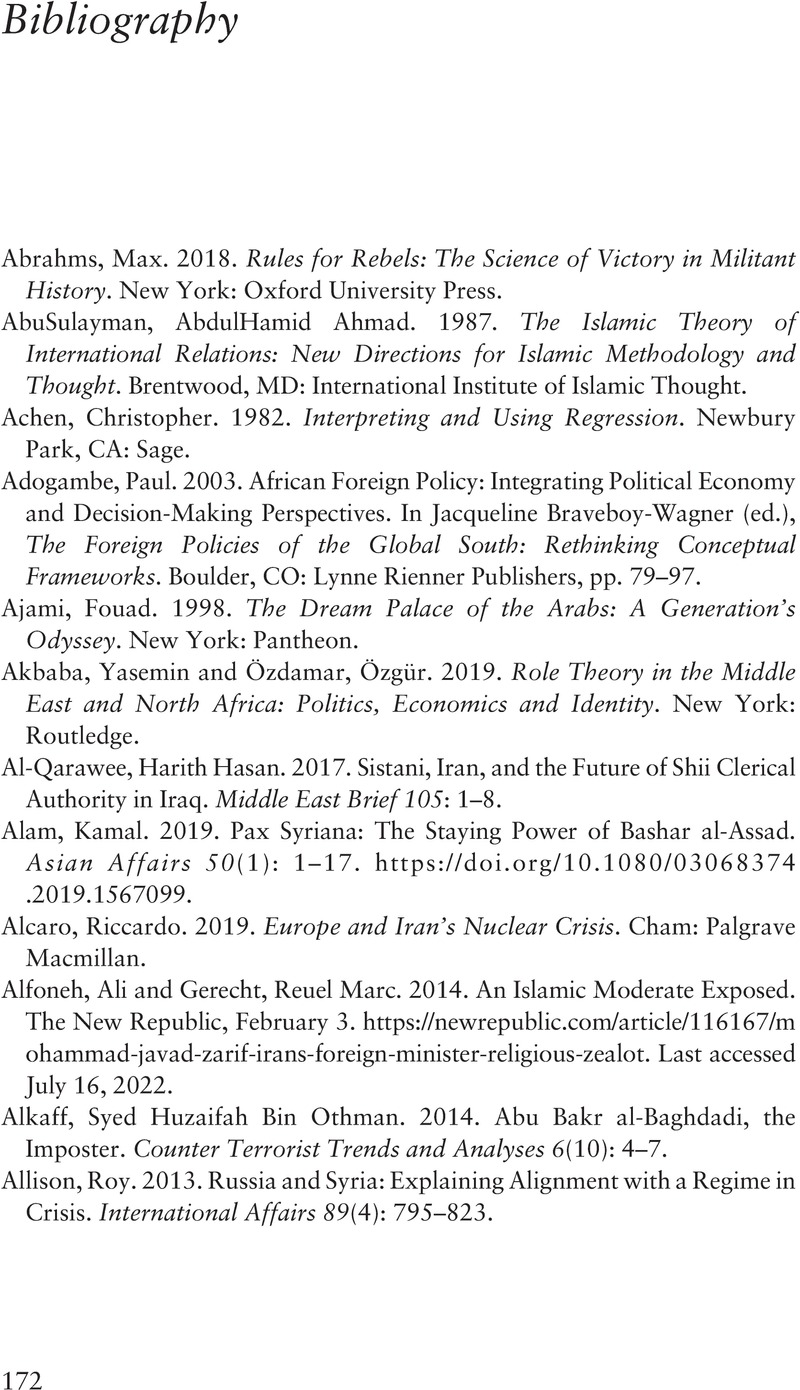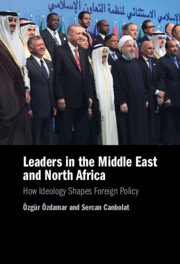Book contents
- Leaders in the Middle East and North Africa
- Leaders in the Middle East and North Africa
- Copyright page
- Contents
- Figures
- Tables
- Abbreviations
- 1 Political Ideology and Foreign Policy Decision-Making in the Middle East and North Africa
- 2 Political Islam and Sunni Ideology
- 3 Political Islam and Shia Ideology
- 4 Secularist Leaders in the Levant
- 5 Armed Nonstate Actors’ Foreign Policy
- 6 Leaders, Foreign Policy Decision-Making, and International Relations
- 7 Policy Implications and Future Research
- Bibliography
- Index
- References
Bibliography
Published online by Cambridge University Press: 03 August 2023
- Leaders in the Middle East and North Africa
- Leaders in the Middle East and North Africa
- Copyright page
- Contents
- Figures
- Tables
- Abbreviations
- 1 Political Ideology and Foreign Policy Decision-Making in the Middle East and North Africa
- 2 Political Islam and Sunni Ideology
- 3 Political Islam and Shia Ideology
- 4 Secularist Leaders in the Levant
- 5 Armed Nonstate Actors’ Foreign Policy
- 6 Leaders, Foreign Policy Decision-Making, and International Relations
- 7 Policy Implications and Future Research
- Bibliography
- Index
- References
Summary

- Type
- Chapter
- Information
- Leaders in the Middle East and North AfricaHow Ideology Shapes Foreign Policy, pp. 172 - 193Publisher: Cambridge University PressPrint publication year: 2023



